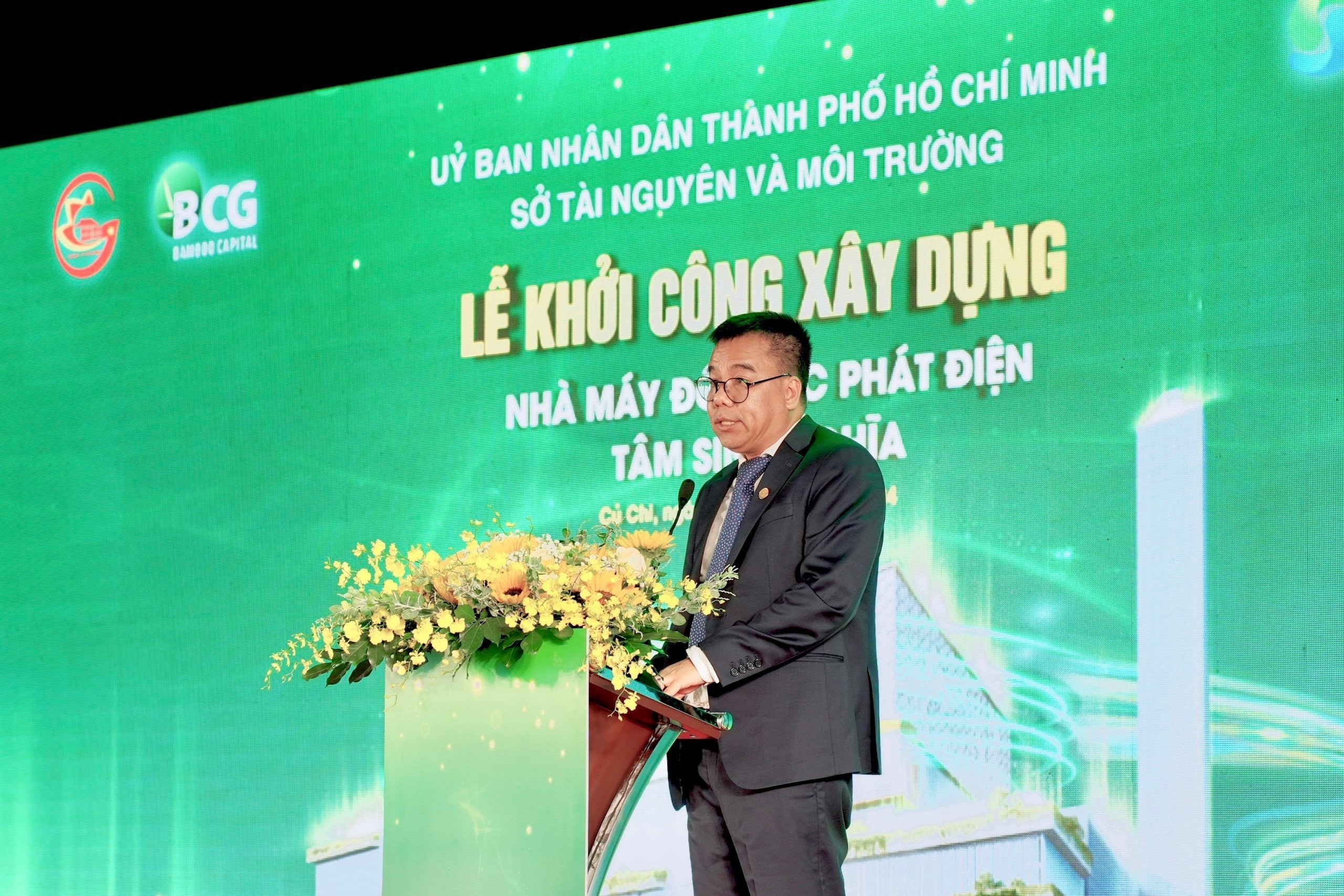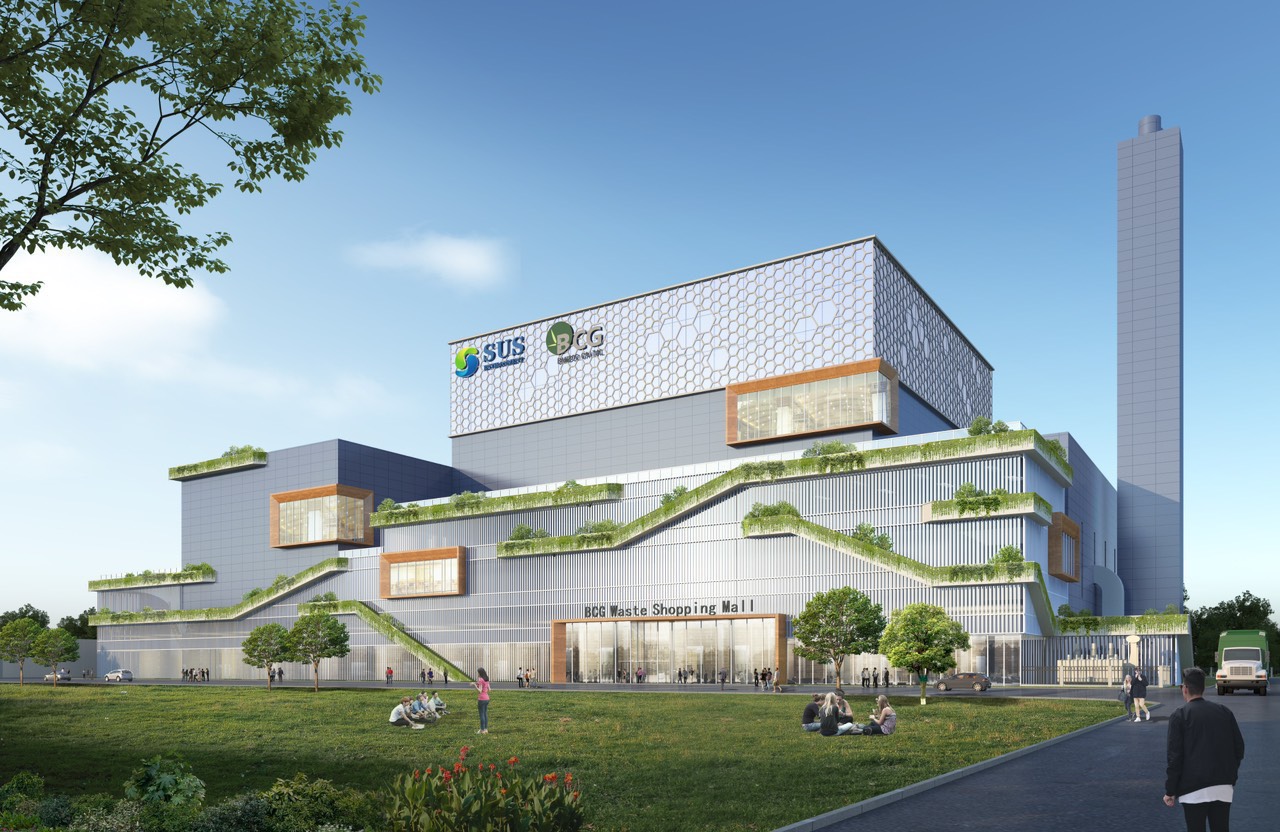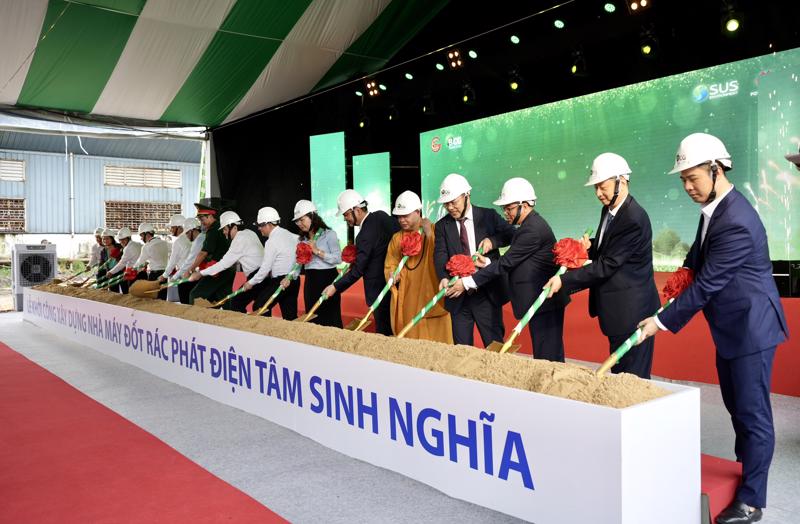The Bamboo Capital Group (HoSE: BCG) held the breaking ground ceremony on July 20 for the Tam Sinh Nghia Waste-to-Energy Plant in Thai My commune, Cu Chi district, Ho Chi Minh City.
Easing pressure on waste management in HCMC
Figures from 2023 show that Ho Chi Minh City generates 9,800 tons of municipal waste each day, rising to over 11,000 tons a day during peak holiday periods. On a national level, Vietnam is among the top 20 countries and territories generating the most waste, exceeding the global average. Each day, some 60,000 tons of municipal waste are generated nationwide, with around 60 per cent originating from urban areas.
Municipal solid waste is a significant environmental issue in Vietnam and is increasing by an average of 6 per cent each year from 2021 to 2030. Most is currently disposed of at landfills, which create environmental issues such as groundwater pollution, soil contamination, odor emissions, and leachate discharge. Waste-to-energy technology is seen as the most effective solution for waste management that ensures no environmental pollution and does not impact public health. However, Ho Chi Minh City has no operational waste-to-energy plants, and traditional waste treatment methods pose many environmental risks and result in energy loss.
Understanding this situation and drawing on its experience as a leading clean energy company in Vietnam, BCG Energy - a member of the Bamboo Capital Group - acquired the Tam Sinh Nghia Investment - Development JSC on January 31, 2024, officially entering the waste-to-energy sector. Tam Sinh Nghia is a waste management company serving Ho Chi Minh City and the Mekong Delta’s Long An and Kien Giang provinces, and has licenses for converting technology at waste-to-energy plants in Ho Chi Minh City and Long An.
To realize its vision of establishing a top-notch modern waste-to-energy plant regionally and globally, the Bamboo Capital Group and its team are committed and dedicated to serious investment. After acquiring Tam Sinh Nghia, the Bamboo Capital Group and BCG Energy have actively coordinated with authorities to complete the necessary legal procedures. BCG Energy is quickly selecting the optimal technology for the project, designing the plant, seeking technology partners, and working with experienced construction contractors to identify effective and timely construction solutions.
With this investment and effort, and especially with strong support from city authorities, on July 5 the Ho Chi Minh City Department of Construction officially issued Construction Permit No. 31/GPXD to the Tam Sinh Nghia Investment - Development JSC. The company is allowed to build the project in different phases. Phase 1 includes constructing the foundation and footing of various components, including the waste-to-energy incineration plant, administrative building, dining hall, and staff accommodation at the plant. Subsequent phases will be permitted according to construction progress and the completion of legal procedures.
Waste-to-energy technology provides dual benefits for the environment and economy. With a Phase 1 capacity of processing 2,000-2,600 tons of waste per day, the Tam Sinh Nghia Plant will significantly reduce the waste management pressure in Ho Chi Minh City, handling about 20-25 per cent of the city’s daily waste using modern, non-polluting technology that recovers heat for production.
Building Tam Sinh Nghia as a Training Center for Waste-to-Energy Technology
The core technology used by BCG Energy at the plant is state-of-the-art SUS-Hitachi Zosen Vonroll technology, which has been used in hundreds of waste-to-energy plants worldwide. This technology is ideal for Vietnam’s municipal waste, which often has high moisture content and low calorific value due to lack of pre-treatment.

Even in environmentally-stringent countries and territories like Japan, Taiwan (China), and the United Arab Emirates, waste-to-energy plants using SUS-Hitachi Zosen Vonroll technology are situated in densely-populated cities. The plant’s waste treatment process is fully enclosed, with emissions safely treated, causing no adverse effects on residents.
After incineration using SUS-Hitachi Zosen Vonroll technology, waste volume and mass will reduce significantly, with heat generated from the process converted into electricity for production and daily use. The residual ash from incineration is non-toxic and can be used as construction material. Wastewater generated during plant operation is collected, treated, and recycled to cool the plant’s machinery. Emissions and fly ash are processed using advanced technology exceeding EURO 2010 standards, ensuring no odor or air pollution.

The Bamboo Capital Group and BCG Energy, along with their technology partners, are committed to building and operating the Tam Sinh Nghia Waste-to-Energy Plant under stringent technical standards. The goal is to make the plant a model project, an environmental icon in Ho Chi Minh City, and a center for training and technology transfer in waste-to-energy around the country. Alongside the Tam Sinh Nghia project, BCG Energy will also soon begin projects on waste-to-energy plants in Long An and Kien Giang provinces. BCG Energy is actively seeking opportunities to expand investments in waste-to-energy plants and other potential renewable energy projects in Vietnam.









 Google translate
Google translate